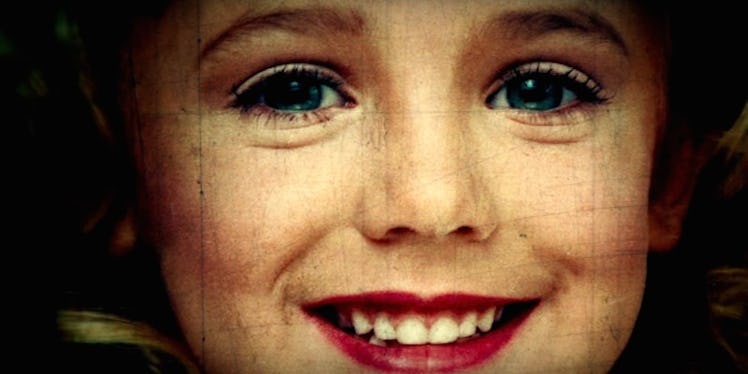
New DNA Test Results In JonBenét Ramsey Case Make Family Murder Suspects Again
In 1996 – almost exactly 20 years ago – JonBenét Ramsey was murdered in her home. She was only 6 years old.
A documentary series came out last month on CBS that chronicled her peculiar and extremely troubling death. It's one of Colorado's most closely studied and poured over unnatural deaths in the past few decades.
Over the past 20 years, there has been much speculation that her brother Burke (who was 9 at the time) killed her, and that her parents helped cover it up by staging a fake kidnapping.
To support this theory is the fact that she was found dead in the basement eight hours after she was reported missing, and that the kidnapping note was written on paper from a notebook found in the home.
That said, at the time, a prosecutor chose to "clear the girl's relatives in her death," as the New York Post reports.
But now, DNA evidence has put that into question.
The Daily Camera and 9News have acquired new lab results that dispute the assertions of former District Attorney Mary Lacy. In 2008, she claimed that the DNA results exonerated her family members. The DNA was obtained from samples collected from JonBenét's underwear and long johns.
Mary Lacy believed that these samples were certainly from the killer. Therefore, because they did not match the DNA of the family members, she argued that no family member could have committed the crime.
But, as The Daily Camera explains it, experts now say this:
The evidence showed that the DNA samples recovered from the long johns came from at least two people in addition to JonBenét — something Lacy's office was told, according to documents obtained by the Camera and 9NEWS, but that she made no mention of in clearing the Ramseys.
The experts also concluded that the samples collected from JonBenét's body were possibly a composite from multiple DNA sources.
Former Colorado US Attorney Troy Eid explained the clear forensic problem with this:
It's a rather obvious point, but I mean, if you're looking for someone that doesn't exist, because actually it's several people, it's a problem.
Furthermore, the experts went on to explain that, as The Daily Camera puts it,
"The profiles were developed from minute samples that could have been the result of inconsequential contact with other people, or transferred from another piece of clothing".
What this all means is that the DNA evidence here may be, essentially, quite useless. If so, depending on it for proof of anyone's innocence is, at this point in time, the experts argue, likely a mistake.
None of this is conclusive proof of guilt regarding any party. But it does open the door even wider to the possibility, at least, of the family's involvement in JonBenét's tragic killing.